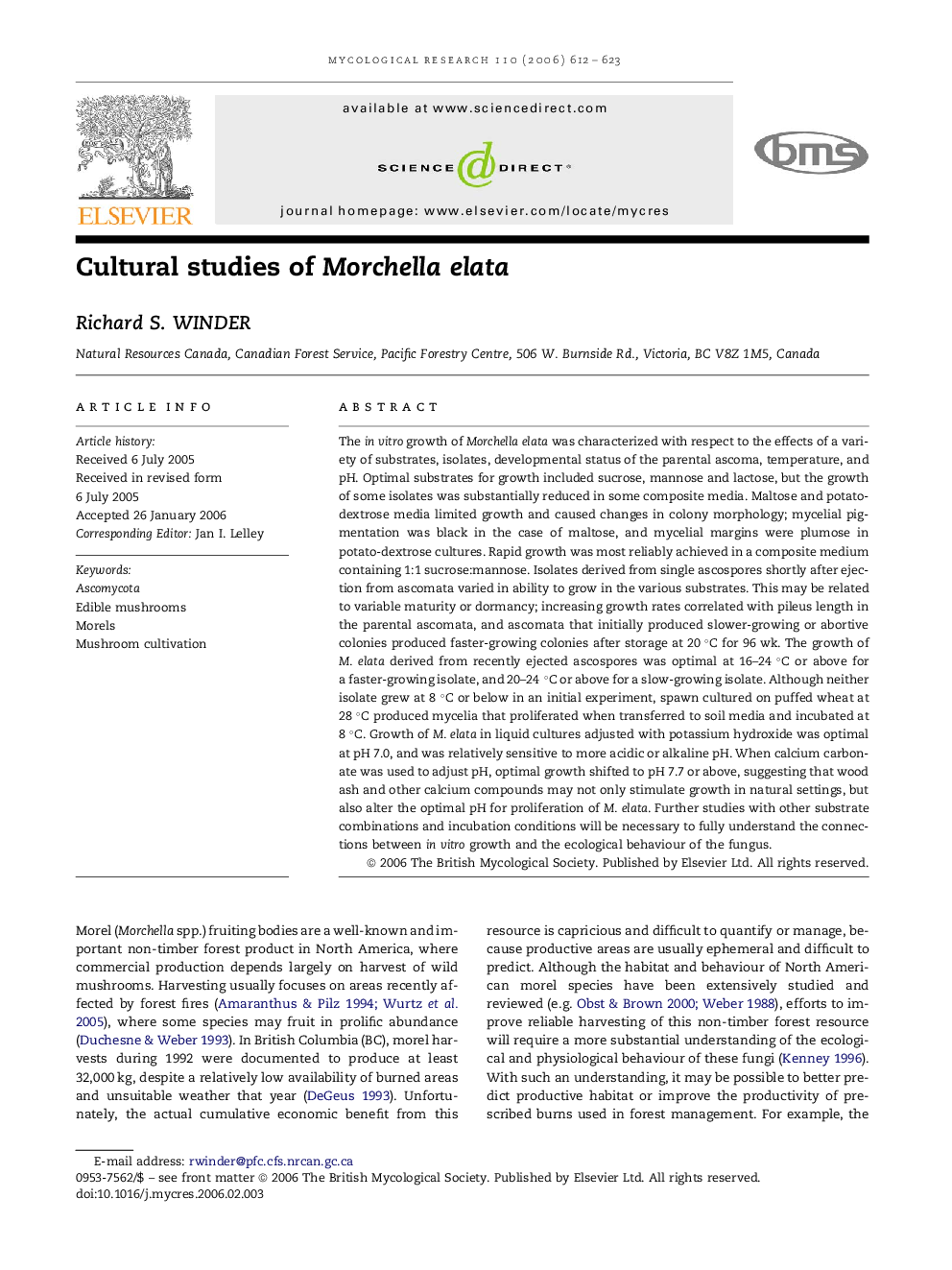| کد مقاله | کد نشریه | سال انتشار | مقاله انگلیسی | نسخه تمام متن |
|---|---|---|---|---|
| 4358152 | 1300128 | 2006 | 12 صفحه PDF | دانلود رایگان |

The in vitro growth of Morchella elata was characterized with respect to the effects of a variety of substrates, isolates, developmental status of the parental ascoma, temperature, and pH. Optimal substrates for growth included sucrose, mannose and lactose, but the growth of some isolates was substantially reduced in some composite media. Maltose and potato-dextrose media limited growth and caused changes in colony morphology; mycelial pigmentation was black in the case of maltose, and mycelial margins were plumose in potato-dextrose cultures. Rapid growth was most reliably achieved in a composite medium containing 1:1 sucrose:mannose. Isolates derived from single ascospores shortly after ejection from ascomata varied in ability to grow in the various substrates. This may be related to variable maturity or dormancy; increasing growth rates correlated with pileus length in the parental ascomata, and ascomata that initially produced slower-growing or abortive colonies produced faster-growing colonies after storage at 20 °C for 96 wk. The growth of M. elata derived from recently ejected ascospores was optimal at 16–24 °C or above for a faster-growing isolate, and 20–24 °C or above for a slow-growing isolate. Although neither isolate grew at 8 °C or below in an initial experiment, spawn cultured on puffed wheat at 28 °C produced mycelia that proliferated when transferred to soil media and incubated at 8 °C. Growth of M. elata in liquid cultures adjusted with potassium hydroxide was optimal at pH 7.0, and was relatively sensitive to more acidic or alkaline pH. When calcium carbonate was used to adjust pH, optimal growth shifted to pH 7.7 or above, suggesting that wood ash and other calcium compounds may not only stimulate growth in natural settings, but also alter the optimal pH for proliferation of M. elata. Further studies with other substrate combinations and incubation conditions will be necessary to fully understand the connections between in vitro growth and the ecological behaviour of the fungus.
Journal: Mycological Research - Volume 110, Issue 5, May 2006, Pages 612–623